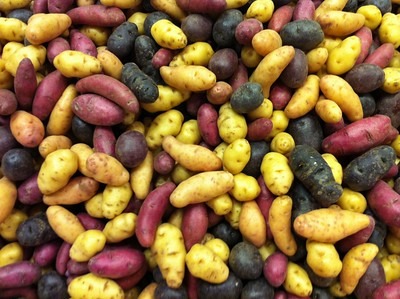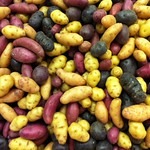
GM/Biotech Crops Report – October 2023
4th October 2023- GM/Biotech Crops Monthly Reports (BELOW) form part of BCPC’s free three-tier Biotech Crops Info service.
- This service also includes a weekly round-up of news from around the globe – see BCPC Newslink GM Crops section.
- Plus – Free access database on over 300 GM/biotech products covering 23 crops in the global market visit BCPC’s GM/Biotech Crops Manual – Register here for free access.
- Already registered? Click here
GM/Biotech Crops Monthly Report October 2023
Coming clean
Scientists at New York University have created virus ‘nanobots’ which seek out harmful bacteria such as E.coli in food and water and make them glow. The technique involves CRISPR editing and makes detection of low levels of harmful bacteria easier to do.
Can AI help with photosynthesis?
Researchers at the University of Illinois are using super computers to try to identify which genes involved in photosynthesis give the biggest improvement in photosynthesis and have been working on the xanthophyll cycle in wheat. They are also investigating ways of improving maize and soybeans and have already achieved 20% increases in seed yield.
Pots of potato genomes
 Researchers at the McGill University have collected the genomes of 300 varieties of potato and its wild relatives to see if they can develop better new varieties. Top of their list of objectives is probably robust blight resistance. Pic: Steven Brown
Researchers at the McGill University have collected the genomes of 300 varieties of potato and its wild relatives to see if they can develop better new varieties. Top of their list of objectives is probably robust blight resistance. Pic: Steven Brown
Full Story.
Hybrid soybeans
The Donald Danforth Plant Centre has used a biotech approach to produce hybrid soybeans that are fertile. Since soybeans are self-pollinating , producing fertile hybrids with the benefits of hybrid vigour has previously been very difficult.
Improving CRISPR editing
Conventional CRISPR, although ground-breaking, can produce off-target mutations but now it has been discovered that inhibiting two molecules in the cell can improve accuracy by 80%.
Sea of rice
A Canadian company, Alora, has developed a rice that is so salt-tolerant that it can be grown in seawater. It is thought that this might reduce methane emissions from paddy fields as well as reduce the use of fresh water.
More on CRISPR
Scientists in Beijing University have developed an alternative editing tool to CRISPR called CyDent that is more accurate than CRISPR and can edit DNA in both mitochondria and chloroplasts.
Better yields
A study by the American Economic Review has concluded that the adoption of GM crops has boosted global agricultural output and that achieving the same output without GM would have required an extra 3.4% of cropped land under cultivation.
GM cotton with stacked traits
COGEM (Commission on Genetic Modification) in Holland has concluded that GM cotton T304-40 x GHB119 x COT102 (cotton with tolerance of glufosinate and resistance to Lepidopteran insects) poses negligible risk to the Dutch environment. This allows it to be used for ‘Food & Feed’ but of course it cannot be grown there.
Techno to tame ag’s greenhouse gasses
A study by researchers at Cornell University shows that using state-of-the-art technology in agriculture can not only reduce but actually eliminate greenhouse gas emissions from agriculture. The effect of this would be to stop the release of 13 billion tonnes of greenhouse gases per year.
No such thing as waste
What to do with waste water? Now researchers in Switzerland have bio-engineered bacteria so that they produce electricity as they feed on the organic compounds present in waste water. However, they don’t say how this electricity is harvested.
Starch types
Wheat has two types of starch granules – large ‘A’ granules and small ;B’ granules which can get lost in the milling process and which can make beer go cloudy. Now the John Innes Centre near Norwich has engineered a variety of wheat that only produces the ‘A’ type starch without affecting plant development or reducing starch content.
NICER gene editing
It seems that there are many ways of editing genes besides CRISPR and now Japanese researchers have developed their own system which they have dubbed NICER gene editing.
Microplastics in seawater
Researchers at North Carolina State University have engineered a marine micro-organism that can break down polyethylene terephthalate (PET) plastics in seawater. I wonder when the debate will start on whether it should be released into the oceans?
Glyphosate resistance for maize
Researchers at the Chinese Academy of Agricultural Science have developed a novel glyphosate resistance in maize using genes from microbes. Their maize variety can withstand 10x the field dose of glyphosate with no adverse effects on growth and glyphosate residues in the leaves are reduced by 90% compared to conventional transgenic plants.
THE LATEST ADDITIONS TO THE GM/BIOTECH DATABASE ARE:
- There are no additions to the database this month
FOR INSTANT ACCESS TO GM BIOTECH MANUAL CLICK HERE (Registration required)
Already Registered? Click here to access

